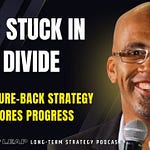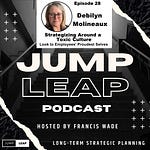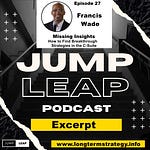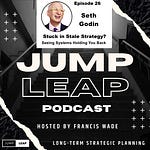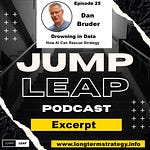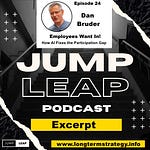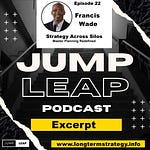You are someone who is already a long-term thinker, working in a non-profit organization. Unlike many, you don’t need to be convinced about the importance of long-term thinking.
Somewhere in the past - childhood, early career - you embedded the idea of long-term thinking in your character. And now, in your thinking. Now balancing short and long-term thinking, planning, strategy, vision is a part of your character.
But this may be why you are confused. Others around you don’t share this trait. They may believe in long-term vision but not in long-term planning.
As such, you feel like a fish out of water - always harping on the need for long-term planning, sometimes asking inconvenient questions.
You can’t understand why others don’t share your commitment. And it’s not that you are particularly ESG, sustainable or anything like that. Nor do you come from an old-school. You just sense that the company would make better decisions if it had more than the usual 3-5-year plan to go with a long-term vision.
But how do you convince others in the C-Suite, and the board, to think with an additional lens? If they already like the idea of a vision, they might be asking “Why do we need a strategic plan to go with it? Isn’t it just more work?
Tune into this episode as I tackle this wicked problem.
Watch the Excerpt here. The full version in video and audio is available to subscribers.
Listen to this episode with a 7-day free trial
Subscribe to JumpLeap Long-Term Strategic Planning to listen to this post and get 7 days of free access to the full post archives.






